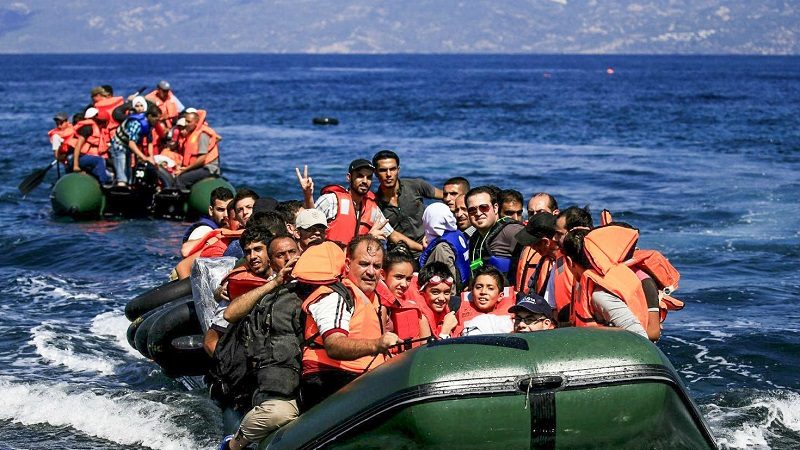Reporters Without Borders (RSF) marked World Refugee Day by drawing attention to the methods used by governments to obstruct media coverage of refugees saying it was “the 21st century’s biggest humanitarian crisis”.
“Threats, intimidation, arrest, prosecution, denial of permits, rejection of interview requests, seizure of equipment and deportation – such are the methods used by governments to obstruct media coverage of refugees,” RSF said in a statement on World Refugee Day on Wednesday.
The international organisation working to defend press freedom globally referred to Italian La Repubblica journalist Alessandro Puglia who became a target after his investigative report on a migrant reception centre in Catania, which included interviews with migrants describing how they were “treated like animals”.
Puglia is being prosecuted for defamation and has been insulted and threatened on social networks. He said the worst and most “unacceptable” aspect of this episode, was encountering “a legal form of intimidation” designed to “discourage journalists from doing their work.”
RSF listed a number of journalists from all corners of the globe to show how journalists faced similar treatment when covering migration issues.
“By intimidating journalists who cover the refugee story, some governments are not only seeking to conceal their violations of international humanitarian law but also to ensure that their questionable political decisions are ignored or can even be denied outright,” RSF said.
Freelance journalist Raphaël Krafft was among the journalists listed by RSF. He noted that behind the official goal of breaking up migrant-smuggler networks, “there is clearly a desire to obstruct our reporting on the ground”.
Krafft has filed a number of stories on migrants in the Mediterranean border town of Ventimiglia as well as the refugee rescue boat Aquarius, which also involved Malta. He was arrested in December 2017 with Caroline Christinaz, a reporter for the Swiss daily Le Temps.
Reporting on migrants “challenges the authorities about the legality of what they are doing,” Krafft said. “Criminal abandonment, failing to assist persons in danger, refusing to recognise the rights of minors… they are very often on the edge of the law.”
The organisation said the situation was far worse “outside Europe”. In Libya, journalists are “terrified” when they go to migrant detention centres, which have been controlled by Libya’s militias since 2014.
After a bureaucratic run-around for the necessary permits, they arrive at a centre where “the reality of the conditions inflicted on the migrants is clearly being disguised” and where they have to “film staged scenes at the militiamen’s behest,” RSF was told by a Libyan reporter, who requested anonymity for safety reasons.
RSF secretary-general Christophe Deloire said: “Our societies cannot dispense with media coverage of migration crises, which are now at the centre of the public debate in Europe and elsewhere. Covering this story cannot be regarded as a crime”.
RSF stressed that governments have a duty and responsibility to not obstruct journalism on security grounds and “not promote a rosy view of an often tragic reality”.












